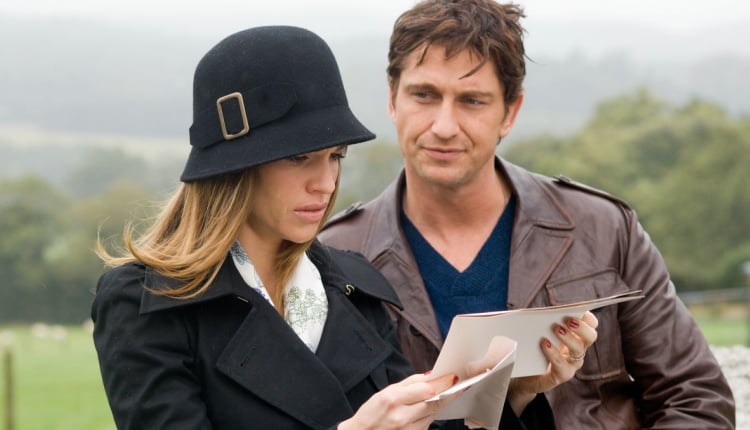10 Years on, is P.S. I Love You Actually Good? The Answer is No
Ten years have passed since the ill-advised adaptation of Irish author Cecelia Ahern’s bestselling novel P.S. I Love You was blasted into the world by a thoroughly American production team with an Americanised view of what Ireland is. While it’s not entirely terrible, it’s quite bad and cements Gerard Butler as a professional charisma vacuum.
The most aggravating thing about this saccharine sugar soup of a film is that there may have been a decent film in there somewhere. I’ve not read Cecelia Ahern’s book but I know enough about it to know that its conceit was admirable enough, if a bit morbid (a dead man lives on in letters sent to his wife after his demise). The film however took stupefying liberties to sell it to an American audience, notably the decision to relocate the film from Dublin to the mean streets of New York and have the main character be American, but that isn’t even the biggest problem.

Across the board, the casting is pretty shocking. No one in this film is particularly suited to their role – everyone is a shade too clichéd (Gina Gershon), too derivative of other, better rom-com characters (Lisa Kudrow is basically Samantha from Sex and the City) or too wooden (Buffy‘s James Marsters is oddly unassuming). But the key offender of course is Gerard Butler whose single-handed butchery of the Irish accent should have been classed as a war crime. Everything about the man’s performance reinforces the worst stereotypes America has to offer. He drinks, he sings, he kisses the girls, he knows his way around the grassy hills of Dún Laoghaire (?!) and he even wears boxers with four-leafed clovers (note: not Shamrocks) on them. His insipid performance makes you celebrate his character’s death. The world would be a better place without Gerry Kennedy.
Butler’s “begorrah pawtaytoe” brogue is challenged only by the unfathomable Jeffrey Dean Morgan who shows up later in the film as a Wicklow musician (“We don’t make those in the States!” objectifies Gina Gershon while pointing at the Seattle-born actor). To my knowledge, the only genuinely Irish actors in the film are the two oldsters who play Butler’s rural Wicklow parents and even they manage to frustrate. Both have distinctly upper-class Dublin accents and seem as though they have been speech-trained within an inch of their lives – the sad burden too many trained Irish actors have to bear.
Again, to say that none of the film is affecting would be a lie – while Butler spends most of the film telepathically begging to be punched in the face, there are one or two scenes that do work on some level. Hilary Swank, unsuited to the kind of sugary romance in this film, acquits herself well in the scenes where she is asked to grieve rather than provide cutesy comedy. As loathsome as the film’s uses of “Fairytale of New York” and “Galway Girl” (the worst song of all time) are, there is something unavoidably charming about the characters singing “I Love You Till the End” to each other (in their palatial apartment which of course they refer to as being too small). But then Swank ruins it by asking him if “all Irish men sing”. “Only the well-hung ones,” quips her Scottish lover. Just call up Michael Collins and cancel the rising.

